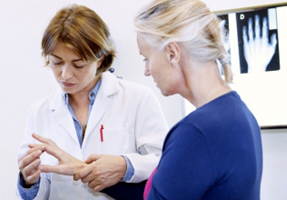8 causes of chest pain that are not a heart attack
Many of those who suffer from chest pain are afraid of a heart attack, but chest pain can have many other causes. Some of them are not dangerous, while others can be serious or even fatal. Chest pain is not always a symptom of a heart disease; it can originate in other organs such as the esophagus, stomach, and lungs or bone and muscle structures that make up the walls of the chest.
If the pain is not associated with a heart attack, then it can have the following manifestations:
- A sour taste in the mouth
- Pain that worsens or weakens with a change in body position
- Pain that increases with deep breathing or coughing
- Hypersensitivity when pressing on the chest.
1. Problems in the digestive system may include:
- Heartburn. This painful burning sensation behind the sternum occurs when gastric acid enters the esophagus from the stomach.
- Swallowing disorders. Some diseases of the esophagus can make swallowing difficult and even painful.
- Diseases of the gallbladder and pancreas lead to the development of abdominal pain that may even be felt in the chest.
2. Heart diseases
Pain sensations in the chest area can be manifestations of cardiovascular problems, especially coronary artery disease and ischemic heart disease. A slight violation of the blood supply to the heart muscle makes the heart hurt, indicating oxygen deficiency. The condition is manifested in paroxysmal pain (stenocardia), shortness of breath, and arrhythmia (cardiac rhythm disturbance).
Chest pain can also happen because of pericarditis – a heart disease characterized by the inflammation of the tissue, surrounding the heart.
3. Injuries or conditions that affect the structures that make up the thorax, for example:
- Costochondritis. This is an inflammation of the cartilaginous part of the ribs. The pain that arises with this is amplified by the movements of the ribs when lying down, turning, coughing, or sneezing.
- Muscle pain. This is a chronic pain syndrome that manifests in persistent muscle pain in the chest.
- Injuries of ribs. Contusions and fractures of the ribs can cause pain in the chest.
4. Diseases of the lungs, including:
- Thromboembolism of pulmonary arteries. This is a life-threatening condition when thrombi (blood clots) enter the pulmonary arteries, preventing the flow of blood to the lung tissue, which causes pain in the chest.
- Pleurisy. Inflammation of the membrane (pleura) that covers the lungs and walls of the chest cavity from the inside may cause sharp pain in the chest, which increases with breathing in and coughing.
- The collapse of the lung. The pain in the chest caused by a collapse of the lung usually begins suddenly and can continue for several hours.
- Pulmonary hypertension. High blood pressure in the arteries carrying blood to the lungs can also lead to the development of chest pain.
5. Thoracic radiculitis
Thoracic radiculitis is associated with the irritation or damage to the nerve root, from which the intercostal nerve is formed. It is a rarer cause of pain in the chest. The trigger for its occurrence may be hypothermia, excessive physical activity, or trauma.
6. Intercostal neuralgia
Most often intercostal neuralgia occurs because of shingles, which is manifested in itchy crusts or bubbles along the lines of the ribs.
By striking the nodes of the nerves, the virus causes rather strong pain sensations. The pain is sharp, burning and sometimes occurs at the slightest touch to the skin.
7. Diseases of the spine
They occur in 60–80% of adults and most often cause pain in the chest. Traumas, sedentary work, and lifting heavy weights lead to the disruption of the normal configuration of the spine. When the weather changes, the load on the intervertebral joints causes inflammation in them, followed by pain.
8. Panic attack
Another cause of chest pain may be a panic attack. Episodes of severe fear accompanied by pain in the chest, palpitations, difficulties in breathing, profuse perspiration, and shortness of breath can be a manifestation of a panic attack.
It’s recommended that you contact a specialist for the correct diagnosis.









